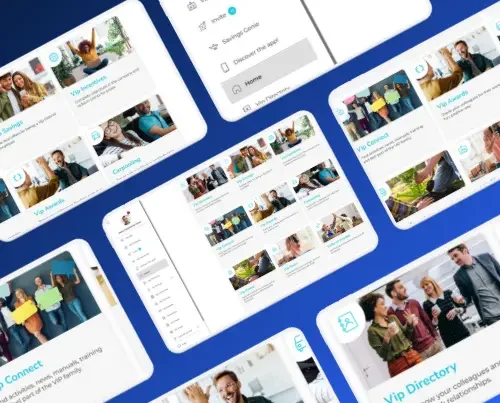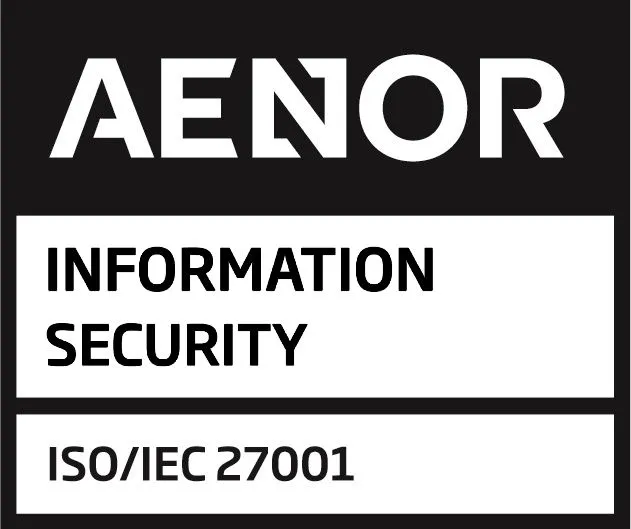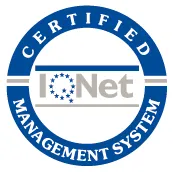
Remote work in Europe has moved from being an exception to becoming a central pillar in many companies’ workforce strategies. For HR professionals, understanding the legal frameworks, practical implications, and effective management of this work model has become a pressing need.
Table of Contents
From clarifying the differences between remote work and telework, to choosing the right contract type, handling incidents, or analyzing performance, this article offers a complete and updated guide. We’ll also explore how digital tools such as Vip Connect and Vip Directory can support organization and internal communication in distributed teams.
If your goal is to adapt HR policies to modern realities, this content will give you the keys to making well-informed decisions.
What is remote work and how does it differ from telework?
In Europe, the regulation of remote work varies from country to country, although many frameworks are influenced by EU directives and national labor codes. While “remote work” and “telework” are often used interchangeably, HR professionals should understand their differences:
Key definitions
- Telework refers specifically to work carried out predominantly using digital or telecommunication systems. In other words, the employee performs their role “online” with technological support.
- Remote work is a broader concept: it covers any situation where the employee works outside the company’s usual premises—occasionally or regularly—and does not always require technology.
Fundamental differences
- Frequency: Some countries set thresholds (e.g. working remotely more than a certain percentage of the time) for legal recognition.
- Technology: Telework relies heavily on digital tools, while remote work may not.
- Formal agreements: In most European jurisdictions, a written agreement between employer and employee is required. For telework, the requirements are often more specific (equipment, expenses, working hours, etc.).
Understanding these distinctions allows HR teams to design clear, compliant policies that ensure fairness and minimize disputes.
Contracts, regulations, and obligations HR must know
Managing remote work in Europe requires mastering both EU-level guidance and local regulations. Countries such as France, Germany, the Netherlands, and Portugal have specific rules, but some common elements apply across the continent.
Types of applicable contracts
Remote work can apply to both permanent and temporary contracts, as long as there is a written agreement that specifies:
- Equipment and tools provided by the company
- Compensation for expenses (e.g. electricity, internet)
- Distribution of working hours
- Mechanisms for monitoring performance
This agreement may be integrated into the initial employment contract or added as an annex.
Employer obligations
- Equipment & tools: Employers must ensure employees have what they need to perform their tasks.
- Health & safety: Remote work requires specific risk assessments, including ergonomic and psychosocial aspects.
- Right to disconnect: Widely recognized in European legislation, ensuring employees can switch off outside working hours.
Support through digital tools
Solutions such as Vip Connect help HR teams centralize documentation, policies, and training related to remote work — making them easily accessible to employees across multiple countries.
A legally sound, transparent, and tech-supported approach is key to a smooth transition to remote work.
Managing incidents and conflicts in remote environments
One of the biggest challenges of remote work in Europe is handling incidents and workplace conflicts when the team does not share a physical space. From technical problems to miscommunication or workload tensions, HR must be prepared to respond quickly and effectively.
Main types of incidents
- Technical failures: Outdated equipment, poor connectivity, or lack of IT support.
- Misalignment: Errors due to unclear communication or misunderstood deliverables.
- Demotivation & isolation: Employees feeling disconnected, invisible, or experiencing fatigue.
Strategies to prevent and resolve issues
- Clear protocols: Documented processes for technical support and incident management.
- Feedback culture: Regular feedback loops and open communication channels.
- Emotional training: Programs on emotional intelligence and conflict management to reduce tensions.
Key HR tools
Platforms like Vip Connect allow HR to centralize training content, internal policies, manuals, and procedures — crucial for consistency in distributed teams.
Discover how Vip Connect helps you design and deliver personalized learning — quickly and effortlessly.
Preparation and structured processes are the best allies for maintaining a healthy work culture in virtual contexts.
Remote work and performance: is there a real connection?
A recurring debate around remote work in Europe is its impact on productivity. Do we work more and better from home, or does performance drop without physical presence? The answer depends on company culture, leadership, available tools, and how performance is measured.
What the data shows
- According to Eurostat, around 13% of employed people in the EU regularly worked from home in 2023, with Northern Europe leading adoption.
- Many companies report higher productivity thanks to flexibility, while others highlight challenges in supervision and team cohesion.
How to measure productivity remotely
- Clear, measurable goals: KPIs based on results, not hours connected.
- Regular evaluations: Continuous feedback and performance reviews.
- Employee wellbeing: Measuring engagement, emotional health, and collaboration.
Digital support
With Vip Directory, HR can map teams and roles more effectively, improving visibility and accountability. Integrations with other tools provide a holistic view of both individual and collective performance.
When managed correctly, remote work can boost — not hinder — performance.
The current state of remote work in Europe: data and trends
Remote work in Europe accelerated dramatically during the pandemic and has since stabilized as a long-term option in many industries. While growth has slowed compared to 2020, data shows it is here to stay — particularly in technology, professional services, education, and administration.
Updated figures
- About 13% of EU workers regularly work remotely, with higher percentages in countries like Finland, Ireland, and the Netherlands.
- Women are slightly more represented in remote work, often using it as a tool for work-life balance.
- The tech sector remains the leader in adoption.
Key trends
- Hybrid as the standard: A mix of on-site and remote is now the preferred model across Europe.
- Flexibility as a benefit: Remote work is a decisive factor for talent attraction and retention.
- Investment in digitalization: Companies are increasingly investing in collaboration and communication platforms such as Vip Connect.
For HR, these trends underline the need to design sustainable remote work policies aligned with both market expectations and employee needs.
Remote work in Europe: a strategic opportunity for HR
Remote work in Europe is no longer a temporary fix but a strategic model that demands HR departments adapt policies, tools, and management skills.
We’ve reviewed the legal differences with telework, applicable contracts, the importance of clear protocols for managing incidents, and the potential impact on productivity. Current statistics and trends confirm that remote work will continue to play a significant role in the European labor landscape.
To capitalize on this opportunity, HR should lean on solutions that support this transition. Tools like Vip Connect (for sharing and organizing critical documentation) and Vip Directory (for structuring teams and responsibilities) can be essential allies.
Adapting to remote work is not just about legal compliance — it’s about strategic vision. HR leaders today have the chance to drive the evolution toward more flexible, efficient, and human-centered work models.
New to Vip District? Contact us and find out what our platform has to offer!








